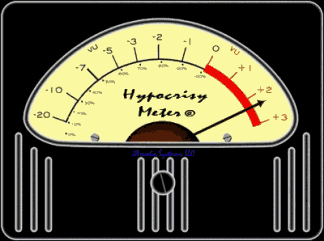Edited by Anita Dixon

The “Country Reports on Human Rights Practices for 2011” [hereinafter “Report”], released by the U.S. State Department, once again demonstrated that the U.S. is seeing the world with a pair of colored glasses, behind which are arrogance, hypocrisy and, especially, prejudice.
When it comes to human rights issues, the U.S. has a long history of arrogance. U.S. officials have said that since the beginning of the 1970s, “the U.S. has formally assumed the responsibility of speaking on behalf of international human rights standards.” In 1976, the U.S. Congress passed legislation establishing the position of Human Rights Coordinator in Congress, and the position was later upgraded to Assistant Secretary of State. The relevant U.S. Congressional legislation also demanded that U.S. foreign and trade policies be linked with the human rights of each country and that reports on each country’s human rights conditions be submitted to Congress each year.
This superficial justice cannot, after all, conceal the United States’ arrogant bigotry. U.S. officials said bluntly that human rights reports are intended to influence policies and guide diplomacy and training for aides. In nearly four decades, the U.S. human rights reports have already evolved into something other than that, with condescending tendencies interfering with other countries’ internal affairs. If the Report is carefully read, one can find that its direction closely corresponds to U.S. global diplomatic strategy. The reasons why China and other countries have been the focus of criticism, and why human rights issues in the U.S. itself, as well as in pro-U.S. countries, have been ignored or understated, all originate from U.S. global diplomatic strategy.
Hypocrisy is a major feature of the U.S. human rights report. When the Report was released, U.S. Secretary of State, Hilary Clinton, said, “Our reports are founded on the simple truth at the heart of the Universal Declaration of Human rights — that all people are born free and equal in dignity and rights. Respect for human rights is not a western construct or a uniquely American ideal; it is the foundation for peace and stability everywhere.”
The fact is that the U.S. holds a double standard on human rights issues, and its human rights reports often play a role in undermining world peace and social stability.
Prejudice is another major feature of the Report. The author of the Report turned a blind eye to China’s progress on human rights, but only picked cases that Americans dislike, then made “selective amplification.” In the Report,142 pages are about China’s human rights. When reading through them, one cannot help but strongly feel that the colored glasses have prevented the authors from providing a comprehensive, objective and balanced view of China’s human rights development and that the authors lacked a sense of history. If China were as the Report portrayed, it would be difficult for the world to understand how China could continue to grow and develop and provide the entire world with development opportunities, and how China could manage to make a great contribution to world peace and stability through large-scale eradication of poverty.
Regardless of arrogance, hypocrisy or prejudice, what lies beneath is Cold War ideology. The United States’ “Country Reports on Human Rights Practices for 2011” showed that the U.S. is not eligible to act as a “world judge of human rights.”

Leave a Reply
You must be logged in to post a comment.